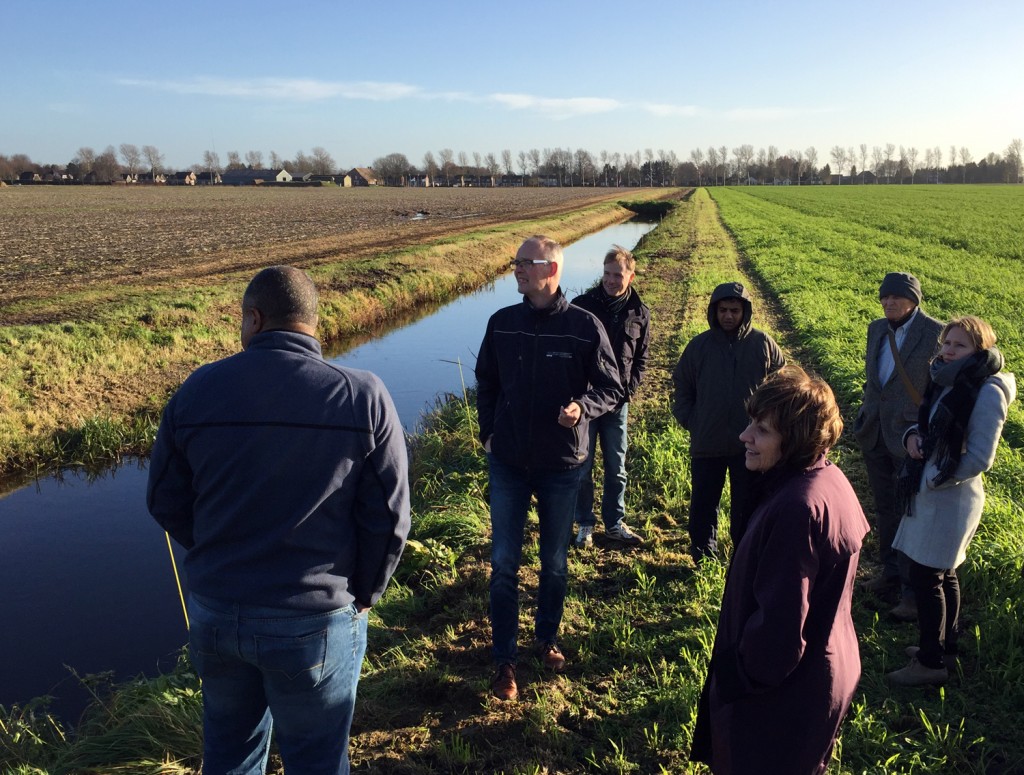
Secretary Ross (center-foreground) visiting Wageningen University’s demonstration farm in the Netherlands. CDFA’s Science Adviser, Dr. Amrith Gunasekara (in hood), is behind Secretary Ross.
In the village of Valthermond in the east of the Netherlands, we visited Wageningen University‘s demonstration farm. Wageningen UR, like UC Davis, is one of the leading agricultural research universities in the world. Here, innovative practices on water and nutrient management as well as soil health are being field tested on the farm – as an incubator for new farming practices that can not only benefit the Netherlands but also has the potential to address food security across the globe.
During the visit in Valthermond we met with Marc van Rijsselberghe, owner of Salt Farm Texel – a producer of salt-tolerant agricultural products. Marc graciously offered us the opportunity to taste his products (tomatoes, potatoes and sea kale) grown with 50 percent sea water. The products are truly amazing and are sold at a premium on supermarket shelves. Marc, like all innovative farmers, took something that was thought to be impossible and made it commercially viable. As we in California address challenges with water quality and saline soils, working with salt-tolerant agricultural products, specifically within the specialty crop sector, can be a positive step in adapting to our changing climate.
While on the farm, we also had the opportunity to get our hands in the dirt, note the qualities associated with having higher organic matter in the soil, and discuss the farming approaches to keep soils healthy. Like California, Dutch farmers understand the importance of healthy soils and what this can mean for productivity, carbon sequestration and environmental sustainability. Farming practices associated with maintaing and increasing organic matter in soils is an area where California truly excels.
In all of our meetings and visits so far, the Dutch have stressed the approach of business, academia and government working collaboratively to solve on-farm challenges associated with climate change. It has resulted in some very impressive work and synergies among various stakeholders. I’m looking forward to a time when we have multi-national collaboration between California and the Netherlands on climate smart agriculture, involving business, academia and government working for a more sustainable future.
Secretary Ross is in the Netherlands as part of a Climate Smart Agriculture policy mission funded in part by CDFA’s Specialty Crop Block Grant Program. This program is a collaboration between the Ministry of Economic Affairs of the Netherlands and CDFA to develop strategies and management practices to enable specialty crop growers to adapt to climate change and reduce greenhouse gas emissions.



One Response to In the Netherlands – The Taste and Feel of Climate Smart Agriculture